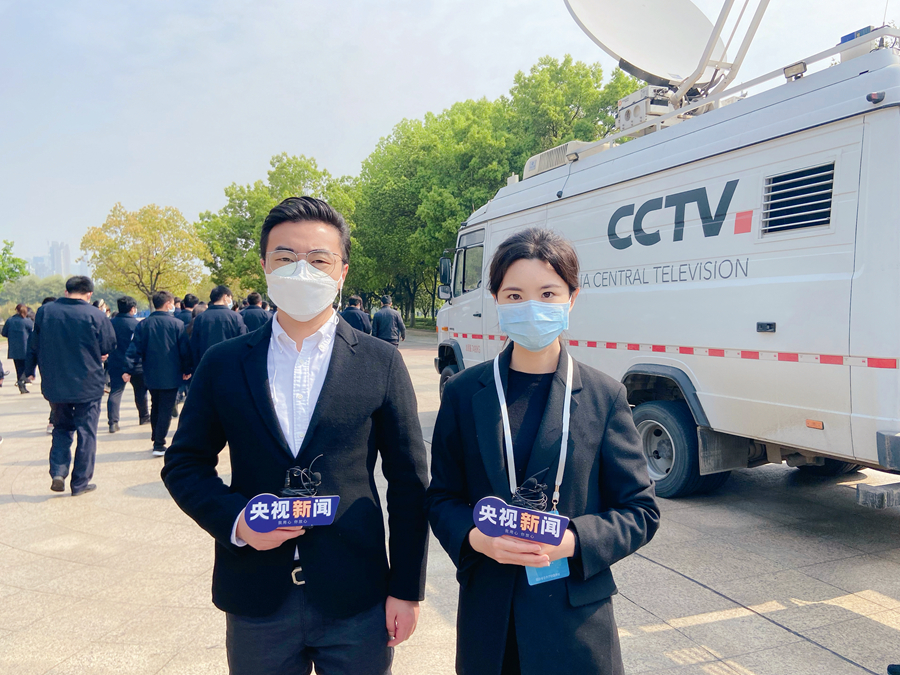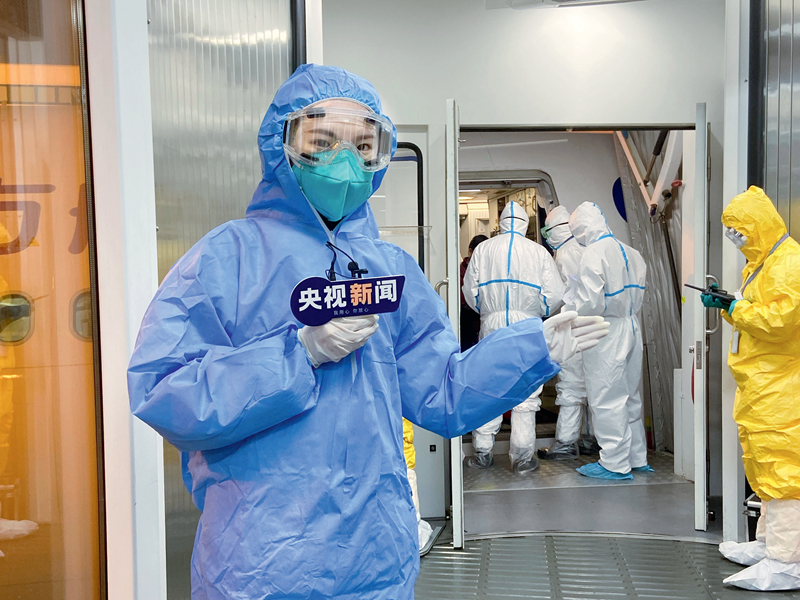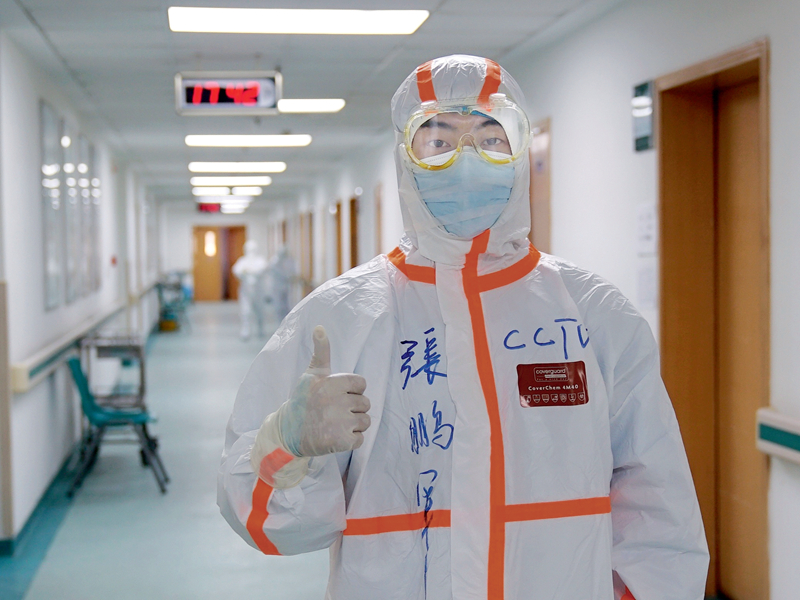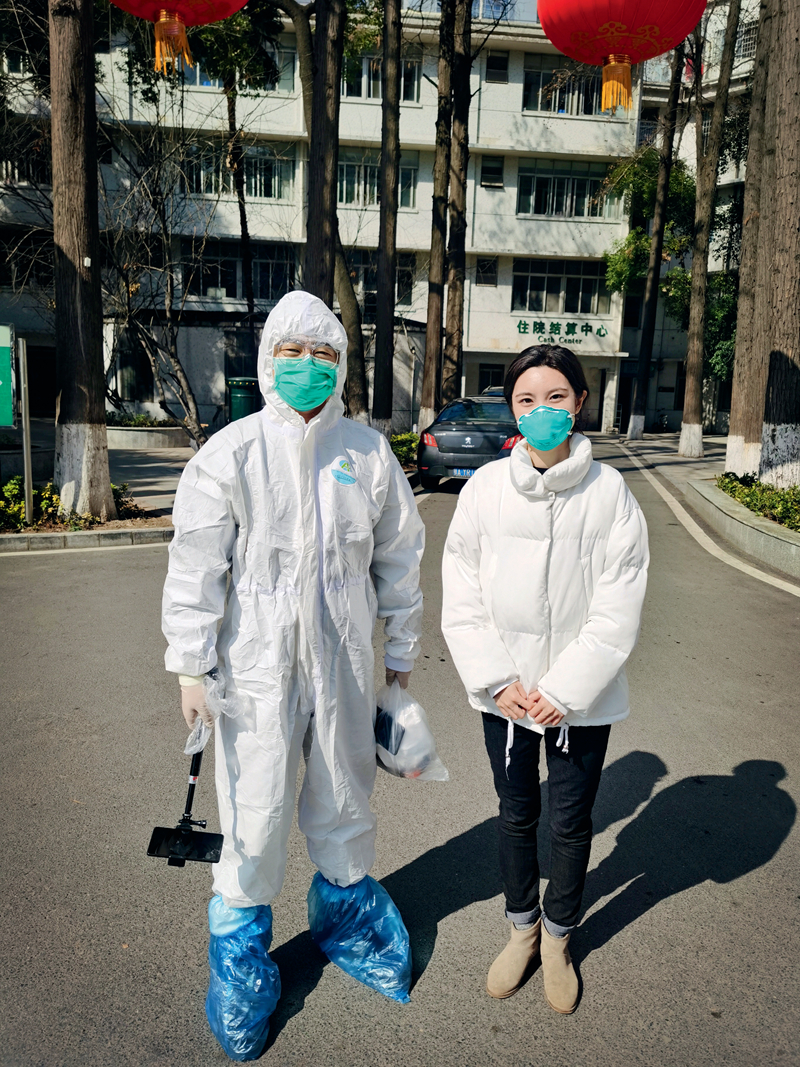Journalist couple shares stories of love, strength


Zhang Pengjun and Li Jinghui are both reporters with China Central Television (CCTV)'s News New Media Center. This year, the couple stayed in Wuhan, capital of Central China's Hubei province, for 92 days as they reported from the front line on Wuhan's efforts to combat the novel coronavirus disease (COVID-19). As she recalls the days she was "fighting on the battlefield" with her husband, Li tells Women of China, "It was our tough, but sweet, memory."

Fighting, winning with Wuhan
Before this year's Spring Festival, a short documentary, entitled "Forgive You," was broadcast. Zhang and Li both participated in shooting that film. "Forgive You" depicted how people at different posts, such as a train driver and an armed police soldier, chose to continue working during the Chinese New Year holiday instead of gathering with their families. Zhang and Li never expected they would have to make a similar choice — during 2020 Spring Festival — when they were working on the film.
On January 24, Chinese New Year's Eve, Li's parents waited in their home, in Xi'an, capital of Northwest China's Shaanxi province, for their daughter to visit and celebrate Spring Festival. The following day, they received a call from Li. "I believe our family is understanding in a special occasion, aren't we?" Li asked her parents. She was calling on her cellphone as she was riding a train from Beijing to Wuhan. Her parents soon figured out what was going on. They asked, "You are going to Wuhan, right? Is Pengjun with you?"

Recalls Li: "When I decided to study journalism as my major in university, my parents told me it would be a meaningful, but tiring, job to be a reporter. Regardless of good things or bad things, I have to be at the spot." Li said she was moved by her parents because they always supported her when she decided to report on the front line. This time was no exception. Li's parents reminded her, and her husband, to protect and take care of themselves. They were sure the young couple would complete their assignment.
There was a period of time when Zhang entered isolation wards almost daily. He reported on doctors and nurses who were doing their best to save COVID-19 patients. But Zhang encountered a few "accidents." For example, a doctor whom he had interviewed one day developed a fever. Zhang, as a close contact, had to receive a nucleic acid test (NAT) to check whether he had been infected with the coronavirus. Fortunately, the doctor was simply catching a cold, and Zhang was alright. On another day, Zhang accidentally touched his eyes with his goggles when he was taking off the goggles after he exited an isolation ward. To avoid being infected with the virus (from the potentially contaminated goggles), a nurse used saline water to wash Zhang's eyes. That scene was recorded and posted on Weibo, and it aroused the concern of countless netizens.


























